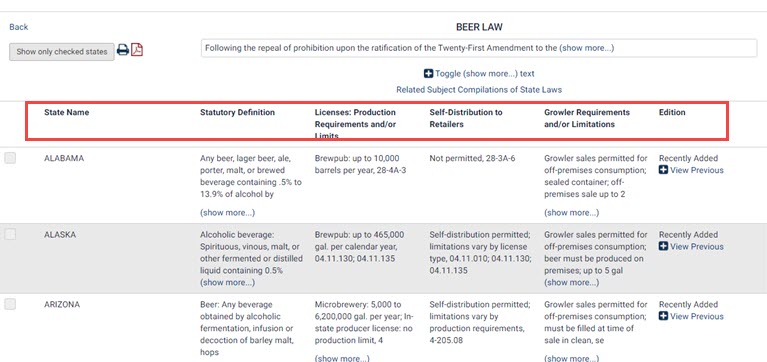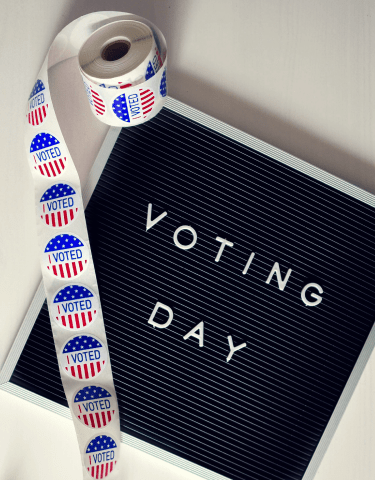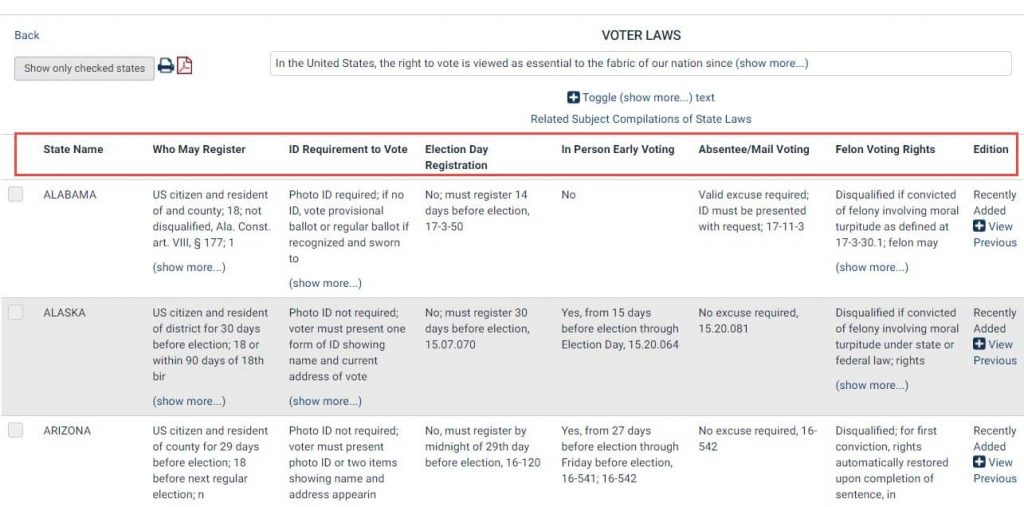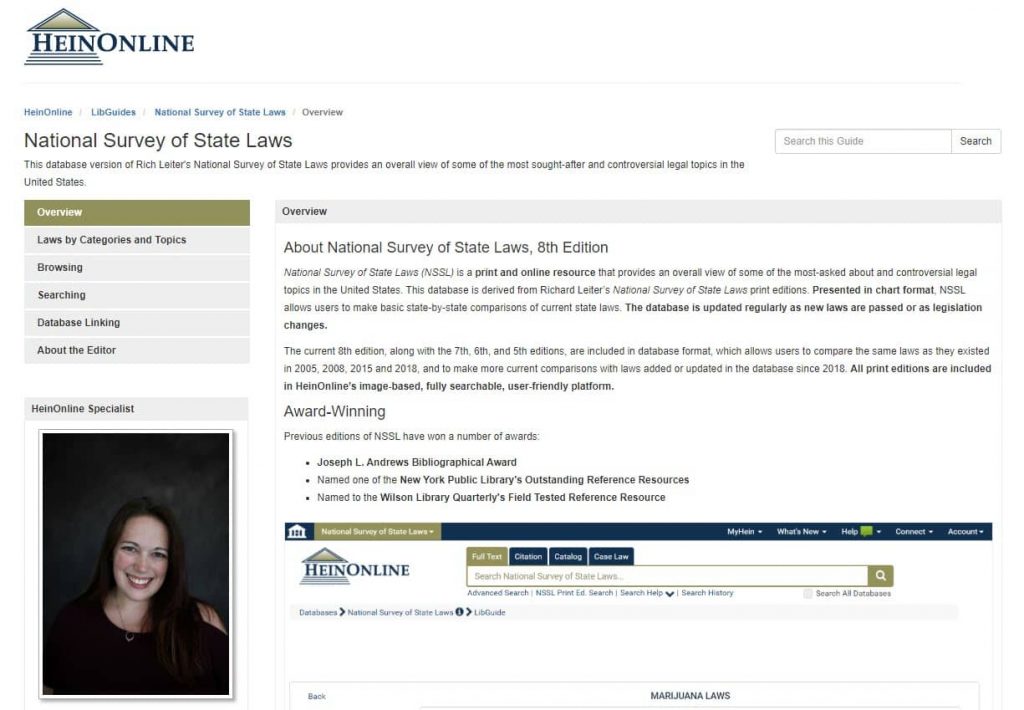National Survey of State Laws (NSSL) is a print and online resource that provides an overall view of some of the most-asked-about and controversial legal topics in the United States. This database is derived from Richard Leiter’s National Survey of State Laws print editions.
Presented in chart format, NSSL allows users to make basic state-by-state comparisons of current state laws. The database is updated regularly as new laws are passed or revised.
The current 8th edition, along with the 7th, 6th and 5th editions, are included in database format, which allows users to compare the same laws as they existed in 2005, 2008, 2015 and 2018, and to make more current comparisons with laws added or updated in the database since 2018. All print editions are included in HeinOnline’s image-based, fully searchable, user-friendly platform.
New Chapters Available
Beer Law

The statutory definitions of beer have a significant impact on the business of production and sale of beer in each state. In some states, the definition hinges on ingredients used in brewing; in others, the focus is on the alcohol content of the resulting product. Some construct beer as part of a larger class of malt beverages, while others make fine distinctions between “non-alcoholic” beer, low alcohol beer, and higher alcohol beer.
This new chapter reflects the rights and responsibilities of breweries and other beer manufacturers only. Unless necessary for clarity, it does not mention other business entities that sell beer, such as non-brewpub restaurants or grocery stores, as state law frequently differs regarding privileges extended to breweries and those extended to other types of sellers.
Headers for this chapter include the statutory definition of beer, licenses to sell beer, requirements for self-distributors, and more.


Voter Laws
In the United States, the right to vote is viewed as essential to the fabric of our nation. The U.S. Constitution did not establish voting as an absolute right, and right vs. privilege has been a controversial subject ever since. Despite amendments and federal laws on the subject, there are those who labor to disenfranchise, much of which happens at the state level, where the mechanics of voting are centered.
With the 2020 presidential election looming in the middle of the COVID-19 pandemic, the question of absentee voting has become one of great importance. This area of voting law will likely be volatile for the next few months and may change the way elections are handled in the future. Understand the differences across the country and keep apprised of updates with this new chapter.
Headers for this chapter include requirements to register to vote, whether ID is required to vote, in-person early voting, absentee/mail voting, and felon voting rights.

Recently Updated Chapters
Civil Rights
Civil rights laws are among the most volatile and controversial in the American legal system. The force behind these laws is that certain groups of individuals in our society need protection from infringement on certain basic rights that are recognized under our legal system and are inherent in our form of government.
This chapter has been updated to reflect what some are calling the biggest civil rights movement yet.
Corporal Punishment in Public Schools
In 1977, the U.S. Supreme Court ruled in Ingraham v. Wright that schools may use corporal punishment despite parental objection. In the 40+ years since that ruling, nearly all states have addressed the issue. Corporal punishment is prohibited by statute or regulation in 31 states and left to the local school boards to decide in 15 others.
The chart within this chapter covers primarily state statutes regarding corporal punishment and not local rules.
Deceptive Trade Practices
A deceptive trade practice is an activity which an individual or business engages in that is calculated to mislead or lure the public into purchasing a product or service. False advertising and odometer tampering are two of the most blatant examples of this commercial lying. Such activities are given special status as offenses against the citizenry in general and are therefore accorded by law special enforcement status.
There is little controversy among the states over what activity amounts to a deceptive trade practice. However, there is a great deal of variety concerning the remedies available for violations and who may sue for them. Understand the discrepancies in this updated chapter.
Interest Rates
Every state has specific limits on the amount of interest that may be charged on consumer contracts, ranging anywhere from 5 to 25 percent. Many states, however, allow any interest rate to be charged if all parties to a contract agree to it in writing. There are myriad exceptions to the legal interest rate, which may be tied to the character of the lender, borrower, loan amount, nature of the contract, or the matter that is the subject of the contract. Because laws on the subject are constantly changing, this chapter seeks to provide a foundational understanding of state interest rate laws.
Legal Holidays
The diversity of our country is reflected in the various holidays recognized by the individual states. While many holidays, including New Year’s Day, Memorial Day and Labor Day, are considered legal holidays in all states, others, such as Good Friday and Robert E. Lee’s Birthday, are recognized in only a handful, while a few are particular to only one state.
Due to the myriad differences in state local holidays, the major holidays are featured in this chapter for comparison.
Minimum Wage
As part of the Fair Labor Standards Act (FLSA), the federal government established a minimum wage, which is the least dollar amount that may be paid hourly workers in both the private and public sectors. This rate is currently $7.25 per hour, and all covered nonexempt workers in all 50 states are guaranteed this wage regardless of cost of living.
In the last few years, there has been a great deal of activity among states to raise their minimum wage, and some of the raises have been substantial. The chart provided in this chapter demonstrates minimum wage differences across the country.
More About National Survey of State Laws
Interested in using the National Survey of State Laws database but aren’t sure where to start? Check out our LibGuide for database-specific explanations, tips, and tricks.

Not Subscribed?
Not subscribed to National Survey of State Laws but want to see what all the fuss is about? Check out our pricing below.
Print & Online Access:
This includes the print edition of the book and access to the online database with regular updates. Access will last until the next edition is published (approximately 36 months).
1 Print Copy & Online Access for 1 Location……………………………..$240.00
1 Print Copy & Online Access for Multiple Locations……………….$310.00
Additional Print Copies……………………………………………………………………$95.00



